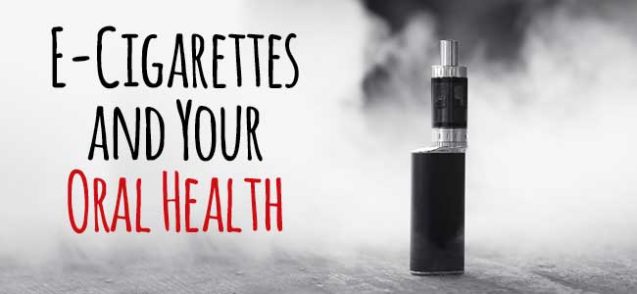By admin
18 Mar, 2017
Dental Health, Dental Hygiene, Dental Tips, General Dentistry, General Health, Lifestyle, Oral Health
cavities, gingivitis, gum disease, plaque, tartar, teeth cleaning
Why do I Need Professional Teeth Cleanings?
Let’s look at five reasons why you should get your teeth regularly cleaned.
1. We check for oral cancer
With cancer, the sooner it’s detected the better chance you have of successfully getting rid of it. Oral cancer is no different. During each teeth cleaning, we check for any signs of oral cancer.
2. Cleanings help prevent cavities
Brushing and flossing every day will do wonders in maintaining a healthy mouth. But, sometimes you may forget to floss, or maybe you had a few too many sodas and candy bars. Our dental hygienists will ensure that your mouth is free of plaque, and can also give you tips for your at-home cleaning if they see something you may not be doing.
3. Cleanings help prevent gum disease
Gum disease can easily creep up on anyone. It is often painless until it becomes a bigger problem. When diagnosed with gingivitis, it can still be reversed with proper gum maintenance.
Once gingivitis progresses to periodontal disease, it requires ongoing professional care to prevent further damage to your mouth. Professional cleanings at twice a year drastically reduce the risk of gum disease ever starting.
4. Having a healthy mouth contributes to a healthy life
Poor oral health has been connected with diagnoses for diabetes, heart disease and pregnancy complications. Keeping your gums and teeth healthy will help prevent the occurrence of these diseases.
5. Regular cleanings are cheaper than taking care of oral problems
Receiving two professional cleanings a year may be an expense you don’t like to see. However, teeth cleanings are much cheaper than other procedures, such as root canals, scaling and root planing, and dental implants.
There is nothing better than a freshly cleaned mouth! Our dental hygienists will make sure you have pain free experience, and you can leave knowing you’ve taken a giant leap forward in maintaining a healthy smile.
If you have more questions about our professional teeth cleanings, or if you’d like to schedule an appointment, please call your Lancaster dentist at (661) 952-7865.
More
By admin
15 Jul, 2016
Dental Health, Dental Tips, General Dentistry, General Health, Lifestyle, Oral Health
bad breath, damaged gums, dental hygiene, gum disease, oral health
For many smokers, e-cigarettes seem like the best answer to avoiding the nasty side effects of smoking traditional cigarettes, including the odor and the staining of teeth, skin, and clothing. Though e-cigarettes still contain the highly addictive chemical nicotine, tobacco and other harmful elements are eliminated from the electronic smoking process, or what some refer to as “vaping.”
The growing popularity of e-cigarettes and vaping, especially among young people, has caused a rise in concern over the lack of knowledge around the effects it has on health. While clinical studies are currently underway, in 2014 the U.S. Food and Drug Administration (FDA) released a statement saying “e-cigarettes have not been fully studied, so consumers currently don’t know the potential risks of e-cigarettes when used as intended, how much nicotine or other potentially harmful chemicals are being inhaled during use, or whether there are any benefits associated with using these products.”
Even though the FDA isn’t yet ready to comment on health risks associated with vaping, dentists are able to speak to how these new smoking devices threaten your oral health. Nicotine is harmful to your teeth and gums, even in the absence of tobacco and other chemicals traditionally found in cigarettes. Electronic cigarettes still deliver nicotine to their users through the mouth, throat, and lungs. The following are some of the consequences that come with using smokeless cigarettes.
Gum Disease: One of the telltale signs of gum disease is swelling of the gums caused by irritation. Nicotine reduces blood flow, preventing swelling, which can mask the presence of gum disease — causing your dentist to miss the symptoms and allowing the disease to progress.
Gum Recession: Lack of blood flow to the gums keeps the tissue from receiving the nutrients it needs to survive. Over time the skin dies and recedes.
Bad Breath: Nicotine restricts your body’s ability to produce saliva, which makes your mouth vulnerable to harmful bacteria and tooth decay. Combined, dry mouth and bacteria lead to halitosis, which can be embarrassing and can affect your self-esteem.
Intense Grinding: As a stimulant, nicotine causes muscles to tighten and spasm against the user’s will. It can cause sleep disturbances such as insomnia and grinding of the teeth. Grinding, especially while sleeping, can be damaging to teeth and result in the loss of tooth enamel, as well as chipping, cracking, and breaking of teeth.
If you want to maintain your best oral health, avoiding any type of smoking is recommended. If you do choose to smoke, keeping it to the minimum and maintaining your best at-home oral hygiene practices as well as your routine visits to the dentist is important.
If you see signs of periodontal disease (including red, swollen, bleeding, or receding gums) or experience bad breath, painful chewing, or loose teeth, make sure to contact your dentist immediately. There are treatments you can receive that will help keep your teeth and gums in the best possible condition. Two such treatments include:
- Professional dental cleanings
Plaque and tartar are removed from above and below the gumline. If you have gingivitis or signs of periodontitis, you will be required to have this level of cleaning twice a year or more.
- Scaling and root planing
Plaque and tartar are scraped away from both above and below the gumline while under local anesthetic (scaling). Rough spots on the tooth root are then smoothed out (planing). Locally applied medications, such as antimicrobials and antibiotics, may be used.
If you are experiencing jaw tightness or pain, and you think you might be grinding your teeth, your provider can fit you with a mouthguard that will protect your teeth while you sleep.
It can be difficult to share your habits with your dentist. At Douglas B. Weber, DDS, we treat our patients with respect and compassion. We are here to help you be your healthiest self. If you use e-cigarettes and are concerned about how they may be affecting your oral health, call us today and set up a consultation. We will help you protect your teeth and maintain your natural smile.
More

Motherhood is both wonderful and challenging. Most women agree that the only way to truly understand what being a mom is like is to become one. Once you have had children, they become your main focus, the purpose behind everything you do…and don’t do.
It’s not uncommon for women to neglect themselves after having a baby. From missing the daily shower to going an extra month or two without a haircut, it’s natural for mothers to reroute all of their resources to their child or children, whether that be time, money, or energy. But could that self-neglect be having a negative affect that extends beyond Mom?
Healthy Mom Equals Healthy Child
According to a study published in the Journal of Dental Research (Jan. 19, 2011)1, moms’ oral health predicts their children’s oral health. This 27-year-long study found that if mothers had poor oral-hygiene practices while their children were young, the children had a higher rate of dental caries and poor overall oral health as adults. The study was conducted in New Zealand and consisted of 835 mothers who participated in a self-rated survey and 1,000 children who were examined at age 5 and then again at 32 (more than 900 examined at this time).
The results were overwhelming. Almost half of the children with mothers who had poor dental health suffered from tooth decay and eventual tooth loss as adults.
Bad News or Good?
Initially, these results may sound like bad news, but they support the belief that when moms take time to care for themselves, they are also taking care of their children — a little relief from guilt for mom.
Oral hygiene and dental care should not be seen as optional for mothers; they are crucial to Mom’s self-esteem and overall health, as well as for the children’s health and well-being.
So what does putting the right amount of time and energy into dental care mean for Mom?
- Making sure to brush at least twice a day with fluoride toothpaste
- Flossing every day
- Minimizing the amount of sugary foods that are consumed
- Scheduling and attending regular checkups and cleanings
Some common oral health conditions can be staved off with good oral-hygiene practices and regular checkups:
Periodontal disease: The best way to avoid gum disease is by sticking to your at-home oral-hygiene routine. Flossing is particularly important. When plaque and tartar remain on teeth, a mild form of periodontal disease can occur, called gingivitis, in which the gums bleed and become red and swollen. Gingivitis is reversible, and it can be treated. However, when left untreated, the gum disease worsens, leading to an advanced form called periodontitis that can cause severe damage to the soft tissue that supports the teeth, resulting in infection and eventual tooth loss.
Oral cancer: According to the American Dental Association, 41,000 Americans will be diagnosed with oral and throat cancers this year. Oral or mouth cancer reveals itself as a growth or sore in the mouth or throat that doesn’t go away with time. When you come into our office for your regular checkup, we provide a potentially life-saving oral cancer screening. Our oral cancer screenings consists of a verbal, visual, and physical examination, and they significantly increase your chance of a full recovery should cancer be found. We are your first line of defense for early detection.
Having a healthy mouth and a beautiful smile are key to Mom feeling good about herself. Whether the special mother in your life is yours, someone you know, or you yourself, consider treating her to a teeth-whitening treatment. Sometimes having brighter teeth can give Mom that boost she needs. Feeling good about yourself is important, especially when life gets hard. As your family dentist, we understand that while dark and stained teeth can be healthy, they can also make you look tired, worn down, and older than you really are. Mom deserves better.
Modern-day whitening treatments are fast, effective, and affordable, and they can whiten teeth up to 14 shades brighter. There is no quicker way to make Mom feel as amazing as she is. And remember, when Mom is happy, everyone is happier!
Call today to find out more about how you can help Mom and the whole family stay healthier and happier.
1. http://jdr.sagepub.com/content/90/5/672
More
By admin
18 Jan, 2016
Dental Health, Dental Tips, General Dentistry, General Health
dental hygiene, gum disease, oral cancer, oral health, overall dental health, routine dental exam, toothpaste with fluoride

When you think about visiting the dentist, you most likely think about keeping your teeth white and straight, and having an attractive smile. What you may not realize is that maintaining good oral health has value beyond the obvious aesthetic rewards of a beautiful smile. Dedication to maintaining good at-home oral hygiene practices and making regular visits to the dentist protect your overall health and can help you avoid serious health complications and disease.
Healthy Mouth, Healthy Body
Recent research has linked gum disease to health problems that affect women and men of all ages. Gum disease is a bacterial infection, and as a result, it can enter the bloodstream and cause other health issues:
- Heart disease: Gum disease increases the risk of heart disease and doubles the risk of having a fatal heart attack. Heart disease is the number-one killer of women in America.
- Stroke: Studies have linked gum disease to strokes, with a large percentage of those who have experienced a stroke shown to have been simultaneously suffering from periodontal infections.
- Pregnancy outcomes: Gum disease during pregnancy can increase chances of a premature birth.
Warning Signs
While regular visits to the dentist can help you maintain good health and prevent certain diseases, your oral health can tell your dentist a lot about your overall health as well, and it can raise red flags for health conditions that you may be unaware of. These conditions include:
- Oral cancer: Every time you go in to the dentist for a routine checkup, they screen for oral, head, and neck cancers. When it’s caught early, you have a good chance for a full recovery.
- Diabetes: Gum disease can be a sign of diabetes. People with diabetes often suffer from gum disease, as it reduces the body’s resistance to infection, leaving the gums susceptible to disease.
- Osteoporosis: Periodontal bone loss and tooth loss can be a sign of osteoporosis, which causes bone to become weak and brittle. Early diagnosis of osteoporosis can lead to treatments that can help stave off bone loss and keep them, as well as your teeth, strong and healthy.
- Alzheimer’s disease: Studies suggest that when tooth loss occurs before the age of 35, it can be an early sign of Alzheimer’s disease.
Knowledge Is Power
So how does knowing the connection between whole health and your dental health help you? Now that you know there is such a strong connection, you understand the importance of having a provider who understands it and uses this knowledge to help you make general health care decisions. It also helps you fully understand the importance of maintaining excellent at-home dental hygiene practices and the best oral hygiene basics:
- Brushing twice daily
- Flossing every day
- Attending two routine dental exams annually, with cleanings
- Regularly using a toothpaste with fluoride and a rinse
- Following a healthy diet that is designed to improve both oral and whole health
To find out what your oral health says about your overall health, schedule an appointment with our provider today.
Sources:
http://www.adha.org/resources-docs/7228_Oral_Health_Total.pdf
http://www.mayoclinic.org/healthy-lifestyle/adult-health/in-depth/dental/art-20047475
More
By admin
11 Nov, 2015
Dental Discomfort, Dental Tips, General Dentistry, Lifestyle, Preventive Dental Care
brushing, enamel, fluoride, gum disease, sensitive teeth, teeth grinding, teeth whitening, tooth decay, tooth sensitivity

A breath of crisp winter air, a sip of hot cocoa, a bite out of a sweet candy cane — all of these have two things in common: They remind us of the rapidly approaching holiday season, and though less pleasant, each can also trigger the sharp, unexpected pain associated with tooth sensitivity.
What Is Tooth Sensitivity?
Tooth sensitivity is experienced as a sharp, sudden pain that is felt in the tooth and gum areas. It occurs when gum and enamel loss expose the sensitive surface of the teeth that lie beneath, called dentin. Dentin is less dense than enamel and contains thousands of tubes that lead to the tooth’s nerve center, called the pulp. Once the protective cover is lost, heat, cold, and sweet and acidic foods can reach the nerves inside the tooth through the tubes, eliciting a pain response. Fortunately, once the cause of tooth sensitivity is identified, there are options for treating it and restoring optimal oral comfort.
Causes of Tooth Sensitivity
Some of the things that lead to tooth sensitivity include:
- Overbrushing, brushing too hard, or brushing with a hard-bristle toothbrush
- Grinding and clenching teeth
- Tooth decay located near the gumline
- Plaque buildup
- Tooth-whitening products
- Gum disease
- Fractured tooth
- Dental work
Preventing Tooth Sensitivity
The key to preventing tooth sensitivity is maintaining good oral-hygiene practices. Brushing twice a day, flossing once a day, and rinsing regularly will go a long way toward keeping your gums and teeth healthy and strong. The following are additional steps you can take for reducing tooth sensitivity:
- Always use a soft-bristled toothbrush and brush gently
- Avoid foods and beverages that are acidic
- If you grind your teeth, talk to your dentist about getting a mouth guard to wear when you sleep
- Brush with toothpaste for sensitive teeth
- Keep your enamel strong by using products with fluoride
Treating Tooth Sensitivity
The manner in which tooth sensitivity is treated largely depends on the condition that led to it or the situation that is causing it. If sensitivity is resulting from a cavity or a chip in a tooth, a restoration can be placed to fix it. However, if sensitivity results from exposed dentin, there are treatments designed to reduce the discomfort.
- Fluoride varnish can be applied to the vulnerable, exposed areas of your teeth.
- A mouth tray with a high concentration of fluoride in the form of foam can be placed in your mouth for five minutes. This treatment strengthens weak areas.
- The bonding agent used to adhere restorations to teeth can be used to put a protective seal over the surface of the dentin.
- Gum tissue can be moved from one area of the mouth to an area where tissue has been lost from the root with a gum graft.
If you think you might be suffering from gum sensitivity, call us today at (661) 952-7865 to set up an appointment and find out more about what you can do to restore your oral comfort before the holidays hit.
More





